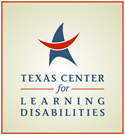Graham, S., & Santangelo, T. (2014). Does spelling instruction make students better spellers, readers, and writers? A meta-analytic review. Reading and Writing, 27, 1703–1743.
Summary by Dr. Amy E. Barth
Overview
Why is spelling important? Text with misspelled words is difficult to read; when compositions contain misspelled words, readers often rate the ideas as being of lower quality; and a lack of fluency in spelling words interferes with the writer’s ability to devote cognitive resources to composing text of sufficient quantity and quality. Although spelling is clearly important, questions remain about how spelling is best taught and learned. There are two views about spelling instruction and learning. One is that explicit teaching of spelling is an efficient use of instructional time because it not only teaches students to spell individual words, but it also helps students with reading and with writing. The other view is that spelling can be and should be acquired more incidentally through the regular reading and writing process.
Graham and Santangelo (2014) tested these two opposing views by conducting a meta-analysis of spelling interventions. Meta-analysis is an approach in which the findings of all located studies on a particular topic are systematically extracted and coded, and the effects from these studies are analyzed to answer specific research questions. The corpus of 53 studies in this review included 6,037 students in kindergarten through grade 12. The effects in these studies were used to answer several research questions regarding the impact of systematic spelling instruction on spelling, phonological awareness, reading, and writing outcomes. Results provided strong support for formally teaching spelling, regardless of students’ grade level or literacy skills. Explicit instruction in spelling resulted in positive effects on spelling performance that generalized to improved performance on more extended writing tasks, and these gains were maintained over time. Formal spelling instruction was also associated with gains in reading and reading-related skills such as phonological awareness. In sum, this meta-analysis provided evidence for the view that explicit teaching of spelling results in positive effects on spelling, writing, and reading compared to either no instruction or less formal spelling instruction.
Research Questions and Key Findings
Does formal spelling instruction produce greater spelling gains than no spelling instruction?
Key findings: The results favored formal spelling instruction over no spelling instruction across both the elementary and secondary school grades, with an average effect size of .54. This means that formal spelling instruction was associated with significant and moderately large effects on accurate spelling. It was also the case that increasing the amount of formal spelling instruction was associated with increased spelling performance.
Does formal instruction in spelling produce greater spelling gains than approaches in which spelling instruction is implicit—for example, when it is modeled in an incidental fashion during broader reading and writing activities?
Key findings: The findings suggested that formal spelling instruction—ranging from practicing the writing of spelling words, to teaching specific spelling skills, to participating in multicomponent spelling instruction—was more effective for learning how to spell than methods that involved incidentally targeting spelling errors during reading or writing activities.
Does formal spelling instruction enhance students’ phonological awareness and their ability to read words and understand what they read?
Key findings: The findings suggested that among early-grade readers, formal spelling instruction enhanced students’ phonological awareness skills. In other words, because spelling instruction provides practice in how letters and sounds fit together, knowledge of the phonological structure of words is also acquired. Among elementary-grade readers and secondary-grade readers, results suggested that formal spelling instruction facilitated the acquisition of important reading skills, such as word reading accuracy and reading comprehension.
Does formal spelling instruction enhance students’ writing skills?
The idea here is that if formal spelling instruction increases the number of words students can accurately and fluently spell, the writer is able to focus on important aspects of the writing process (i.e., planning, monitoring, evaluating, and revising).
Key findings: Findings suggest that formal spelling instruction did not result in significant and meaningful improvements in more extended writing performance.
Implications
Results of this meta-analysis provide strong support for direct and systematic teaching of spelling in both the elementary and secondary grades. Further, these benefits were sustained over time, suggesting that what is learned through formal spelling instruction is retained over educationally relevant periods of time. Formal spelling instruction improved students’ spelling, phonological awareness, and reading skills. However, formal spelling instruction did not translate into better performance on extended writing tasks. Thus, formal spelling instruction should be maintained in the upper-elementary grades and be extended into the middle grades because it has benefits for spelling and reading. The findings also suggest that to significantly improve writing (e.g., extended writing, compositions), instruction must go beyond the spelling of words and should explicitly teach the writing processes (Graham, Harris, & Fink-Chorzempa, 2002).
Reference
Graham, S., Harris, K. R., & Fink-Chorzempa, B. F. (2002). Contribution of spelling instruction to the spelling, writing, and reading of poor spellers. Journal of Educational Psychology, 94, 669–686.
